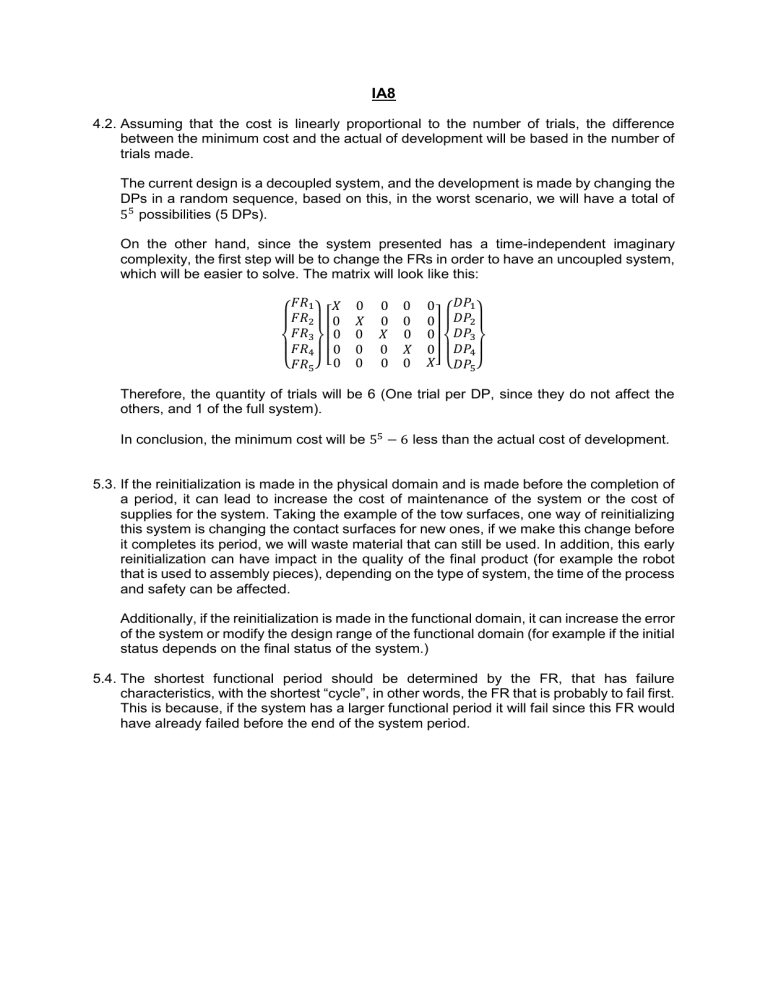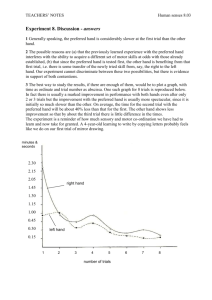System Design Optimization: Decoupled Systems & FRs
advertisement

IA8
4.2. Assuming that the cost is linearly proportional to the number of trials, the difference
between the minimum cost and the actual of development will be based in the number of
trials made.
The current design is a decoupled system, and the development is made by changing the
DPs in a random sequence, based on this, in the worst scenario, we will have a total of
55 possibilities (5 DPs).
On the other hand, since the system presented has a time-independent imaginary
complexity, the first step will be to change the FRs in order to have an uncoupled system,
which will be easier to solve. The matrix will look like this:
𝐹𝑅1 𝑋
𝐹𝑅2 0
𝐹𝑅3 0
𝐹𝑅4 0
{𝐹𝑅5 } [ 0
0
𝑋
0
0
0
0
0
𝑋
0
0
0
0
0
𝑋
0
0 𝐷𝑃1
0 𝐷𝑃2
0 𝐷𝑃3
0 𝐷𝑃4
𝑋] {𝐷𝑃5 }
Therefore, the quantity of trials will be 6 (One trial per DP, since they do not affect the
others, and 1 of the full system).
In conclusion, the minimum cost will be 55 − 6 less than the actual cost of development.
5.3. If the reinitialization is made in the physical domain and is made before the completion of
a period, it can lead to increase the cost of maintenance of the system or the cost of
supplies for the system. Taking the example of the tow surfaces, one way of reinitializing
this system is changing the contact surfaces for new ones, if we make this change before
it completes its period, we will waste material that can still be used. In addition, this early
reinitialization can have impact in the quality of the final product (for example the robot
that is used to assembly pieces), depending on the type of system, the time of the process
and safety can be affected.
Additionally, if the reinitialization is made in the functional domain, it can increase the error
of the system or modify the design range of the functional domain (for example if the initial
status depends on the final status of the system.)
5.4. The shortest functional period should be determined by the FR, that has failure
characteristics, with the shortest “cycle”, in other words, the FR that is probably to fail first.
This is because, if the system has a larger functional period it will fail since this FR would
have already failed before the end of the system period.


